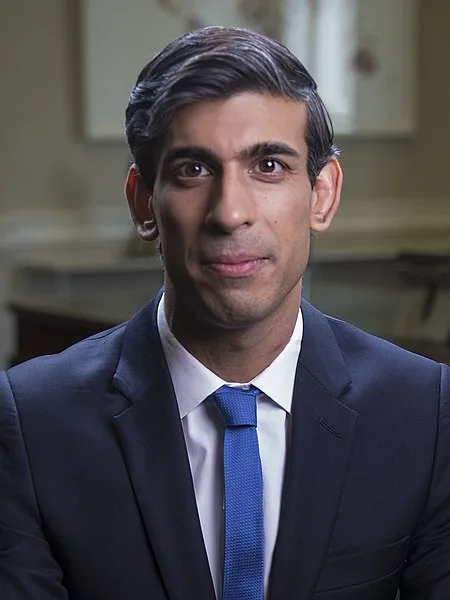Rishi Sunak is the fifth UK prime minister in six years. Beyond Brexit and the economic crisis, here is what’s behind Britain’s unprecedented political instability.

Rishi Sunak 5th Prime Minister UK in 6 years: What’s behind this game of musical chairs in Britain?
Rishi Sunak is the fifth British prime minister in just six years. In fact, he is his third mentor to set foot at 10 Downing Street in London in less than two months. It wasn’t always like that. Prior to that, in Britain he had only two prime ministers in a year, and in 1834 he had only three prime ministers. Until Labor Party Gordon Brown became Prime Minister in 2007, Britain had only had three Prime Ministers in almost 30 years.
More than half of Conservative MPs publicly support Rishi Sunak as Britain’s next prime minister, according to British media reports. This means the former prime minister has garnered his 179 supporters just hours before his nomination deadline.
This is the number required for an absolute majority in a parliamentary group. His only rival in the race, former Chief Cabinet Secretary Penny Mordaunt, was well behind with just his 26 supporters. Former British Prime Minister Boris Johnson, who was due to be in the race, dropped out last night.
Reaching this mark is symbolically important for Rishi Sunak. Because he can claim to have Tory support in Congress as calls for a general election grow. It is also significant that
Rishi Sunak lost to Liz Truss in the last leadership contest. If
Penny Mordaunt fails to win her 100’s of support from Conservative MPs, Rishi Sunak could be appointed prime minister in a matter of hours.
Appointment of an Indian-origin person as British P.M. has thrown open a fierce debate on the minority-majority equation, on four discernible strands
The election of Rishi Sunak as the Prime Minister of the U.K. has triggered some heated conversations in India on minority rights within the country. There are at least four discernible views that have emerged, signifying the divergence within India on the question of minority rights in a democracy.
In the first, Congress leader Shashi Tharoor wondered whether India could elect a member of a “visible” minority community as Prime Minister. He pointedly avoided the fact that Manmohan Singh, a Sikh, had been PM for 10 years. By counting Sikhs out of the minority category — he later clarified that he meant a community that is not Sikh, Jain or Buddhist — Mr. Tharoor betrayed the typical liberal approach to minority politics in India which is about accommodating Muslims and Christians.
This liberal conception of minority and majority at the national level, and in religious terms, is, paradoxically, in alignment with the conventional Hindutva view that sees Christianity and Islam as non-Indic, and hence out of line with the country’s cultural nationalism.
The second view emerges in a Twitter spat between Mehbooba Mufti, former Chief Minister of Jammu and Kashmir, and BJP leader Ravi Shankar Prasad. “Proud moment that UK will have its first Indian origin PM. While all of India rightly celebrates, it would serve us well to remember that while the UK has accepted an ethnic minority member as its PM, we are still shackled by divisive & discriminatory laws like NRC & CAA,” Ms. Mufti tweeted. In response, Mr. Prasad tweeted: “Mehbooba Mufti Ji! Will you accept a minority in Jammu and Kashmir as Chief Minister of the state? Please be frank enough to reply.”
Those who support autonomy for culturally distinctive regions within the country often find it difficult to grapple with questions of minorities among the minorities — Hindus in the Kashmir Valley in this instance. The possible changes in the demography of Kashmir is widely considered a threat to its identity, and not celebrated as diversity as in the case of the U.K. This question of minorities among minorities surfaces quite frequently in India. This week, Tulu and Kodava speakers in Karnataka protested against the State government move to promote Kannada, fearing that it may undermine their mother tongues.
Mr. Prasad may argue for the minorities of the U.K. and Jammu and Kashmir, but not for the minorities in his home State of Bihar, or India in general — and that is the global standard of politics dependent on religious majorities. Minority rights are sought only when one is a minority. Indian Islamists might swear by the Indian Constitution, but they are also likely to support the Islamist policies of Turkey or Saudi Arabia, in the same breath. That is the third view of minority rights, informed by a world view of religious nationalism, in response to Mr. Sunak’s rise.
A Dalit view is different from all these, and was articulated by BSP leader and former Chief Minister of Uttar Pradesh, Mayawati. “After Indian-origin Rishi Sunak’s historic appointment as British Prime Minister, here in India, a Twitter war is going on between the Congress and the BJP. Allegations and counter-allegations are levelled everywhere, but no one is discussing about that political rights and justice due to which no ‘Dalit’ has been able to become Prime Minister in the country so far,” she posted in Hindi on Twitter.
Both secular and Hindutva versions of nationalism in India consider Dalits as part of the larger Hindu society, and not as an autonomous minority.

